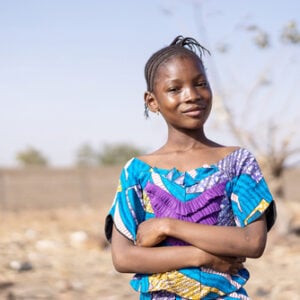A WHO-supported nationwide house-to-house campaign in Sierra Leone, costing USD 300,000, has halved Mpox cases in just one month. Named the “Enhanced Integrated Mpox Response (EIMR),” the campaign ran from July 9 to August 3, 2025, under the leadership of the Ministry of Health, the National Public Health Agency, and District Health Management Teams. WHO provided both financial and technical assistance, including nine technical officers and 35 African Volunteers Health Corps responders deployed to sixteen districts, marking a decisive step in controlling the outbreak.
The campaign focused on strengthening district-level response systems by equipping Incident Management Teams to detect and isolate cases rapidly, thereby interrupting community transmission. WHO teams worked with national and district authorities to identify and report unrecognized cases, engage public and private health practitioners in surveillance, enhance community awareness, and safely transfer confirmed cases to treatment centers. Additional measures included timely sample collection, contact tracing, vaccination, and 21-day follow-up for exposed individuals.
Dr. George Ameh, WHO Representative in Sierra Leone, emphasized that the campaign showcased the impact of coordination, community engagement, and collaboration among partners. He acknowledged contributions from FCDO, GAVI, Denmark, the Netherlands, and Germany, whose support enabled teams to reach even the most remote communities.
Before the campaign, Sierra Leone reported an average of seventeen new daily Mpox cases, which dropped to seven by the campaign’s end—a 58% reduction. WHO teams visited over 250,000 households, educating more than 600,000 people, investigating 704 suspected cases, of which 395 tested positive and were transferred to treatment centers. Over 6,500 contacts were vaccinated, and more than 12,000 high-risk individuals received targeted education.
The success of the campaign was strengthened through partnerships with organizations including the World Food Programme, Africa CDC, HEADA, US CDC, UNICEF, GOAL, Médecins Sans Frontières, and Population Services International. These collaborations provided technical expertise, logistical support, health education, and community mobilization, highlighting the value of collective action in public health emergencies.
Building on this success, Sierra Leone launched phase two of the EIMR on August 11, 2025. This four-week initiative aims to replicate the first phase’s strategies, maintain technical and financial support across all sixteen districts, and further strengthen surveillance, case management, and community engagement to prevent future outbreaks.
Since Sierra Leone confirmed its first Mpox case on January 10, 2025, the disease has spread across all districts, with Western Area Urban and Western Area Rural among the hardest-hit areas. The campaign underscores the importance of early detection, rapid response, and community involvement in ending Mpox transmission and safeguarding public health nationwide.







